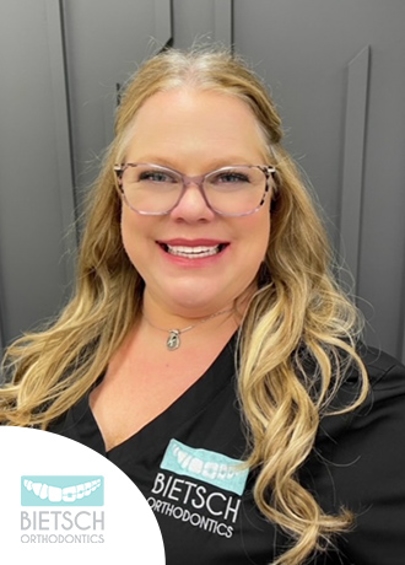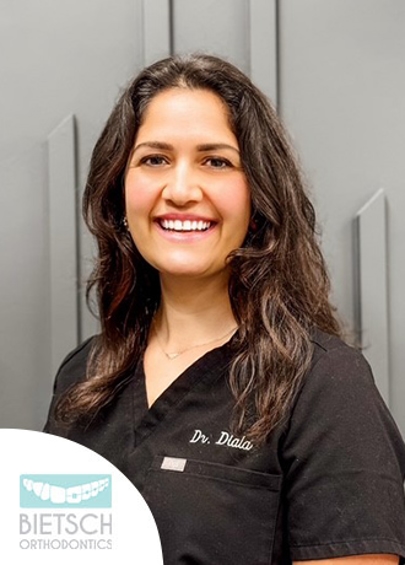
Exceptional Orthodontic Care in Prosper & Melissa, TX
Founded in 2016, our practice provides exceptional orthodontic care for children, teens, and adults in a warm environment that is both comfortable and personal. Our compassionate team understands the importance of oral health for you and your family, which is why every patient who sits in our treatment chair receives the most effective advice and guidance to maintain good oral health for a lifetime of confident smiles.
Bietsch Orthodontics is not your average dental practice. Our patients love coming to their appointments, seeing their progress, and learning what the next step is. Available to patients as young as 7, the process begins by establishing a solid background in good oral hygiene practices. For teens, we instill confidence and take a slightly different approach to ensure the right treatments are chosen based on their lifestyle, goals, and level of comfort.
We truly have orthodontic options for everyone, from adults in the family who are finally ready to get the smile they've always wanted to our local Prosper athletes who may be worried about how metal brackets will interfere with their sports and activities. In our family-centered, state-of-the-art facility, patients of all ages will find themselves comfortable and happy during their visit.
Want to learn more about our practice or schedule an appointment? Call us today at (972) 934-6222. We serve patients in Prosper & Melissa, TX.
Our Unique Orthodontic Approach
Dr. Tom Bietsch is an experienced veteran in the field of orthodontics. He has 24 years of combined skills and knowledge and has treated over 20,000 patients in the last 10 years. He and his family-friendly staff have cultivated a true concierge business that includes moms on our team!
You won’t find another practice that understands the value and importance of family like we do. We mentally and emotionally invest our time in every patient who comes into our office. While most kids fear getting orthodontic treatments, our compassionate staff and inviting office is designed to make you feel anxiety-free and right at home.
Here are just a few of the perks you can expect to find at our office:
- Mobile Orthodontics
- Bilingual staff (Spanish)
- Free consultations both in-person & on the phone
- All major forms of insurance accepted
- Payment plans (flex spending, HSA accounts, in-house financing)
- Same-day appointments
To learn more call our offices in Prosper & Melissa (972) 934-6222 or contact us online.
Building Confidence, One Smile at a Time!
-
Braces BusCall us at (972) 934-6222 to find out more and schedule a consultation today!
-
New & Existing PatientsResources for All Your Orthodontic Needs
-
Community InvolvementThe Many Ways We Give Back
-
Meet Our TeamThe Bietsch Orthodontics Team
Our Smile Specialists
Experienced & Caring
-
 Dr. Tom BietschOrthodontist, Owner
Dr. Tom BietschOrthodontist, Owner -
 KirstenBrace Bus Specialist, Front Team Lead
KirstenBrace Bus Specialist, Front Team Lead -
 MonicaFinancial Coordinator
MonicaFinancial Coordinator -
 WillowFinancial Team Lead
WillowFinancial Team Lead -
 ESPiNMascot
ESPiNMascot -
 Dr. Diala ChanineOrthodontist
Dr. Diala ChanineOrthodontist
Have Questions? We Have Answers!
-
If I have braces, do I still need dental checkups every six months?You should continue with regular dental visits and cleanings every 6 months. Some patients will need to increase the number of times they receive professional cleanings to every 3-4 months to help maintain good gum health since it is slightly more difficult to keep teeth and gums clean with braces.
-
Do I need to brush my teeth more often if I have braces?With braces, you should brush your teeth at least three times a day to keep your teeth, gums, and mouth healthy and clean. You should also floss daily to get in between your braces where your brush isn't able to reach. Electric toothbrushes, such as Sonicare, and waterpicks are excellent and help to keep your teeth and gums clean and healthy.
-
Do Braces Hurt?You will feel soreness with your new braces due to the small amount of discomfort as your teeth, gums, cheeks, and mouth get used to your new braces. It generally a few days depending on the patient.
-
Do I need retainers?Teeth are moving throughout life regardless if you have had braces or not due to the extraordinary amount of pressure we put on our teeth. Therefore, retainers are vital to maintaining the position of your teeth after braces are removed and beyond. It is recommended to wear them all the time once braces are removed and eventually, you can wear them just at night once instructed.
-
If I break part of my braces or have an emergency, what should I do?Rarely do true orthodontic emergencies occur, however when they do we are here to make sure they are taken care of for you. Call our office and we make arrangements to see you and make you comfortable.
There are some things that can be done to make your braces feel better until we see you.
Broken/loose bracket: Remove the bracket if possible place it into a bag and bring it with you to your next appointment.
Pokey wire: Use wax to stick on the area until we see you. If the wire has moved to one side or has come out of the bracket in the back, use needle-nose pliers to put the wire back in back bracket or shift it back to the other side. If that does not work cut the wire with fingernail cutters or wire cutters and pull the wire out to make yourself comfortable.
After alleviating your discomfort, it is very important that you still call our office as soon as possible to schedule a time to repair the problem. Allowing your appliance to remain damaged for an extended period of time may result in disruptions to your treatment plan. -
How long does an average patient wear braces?Every treatment plan is different and everyone’s teeth move a little differently, however, most treatment times are from 15-24 months.
-
What foods can I not eat?A simple rule to follow is to avoid anything that is hard, sticky, or chewy. These foods can cause damage to the braces and can cause treatment time to be extended. Examples of foods to avoid are candy, popcorn, a hard pizza crust, ribs on the bone, and gum.
-
Will my braces interfere with my school activities like sports, playing an instrument, or singing?Braces will not interfere with any school activities, however, there is an adjustment period of getting used to them when playing an instrument and singing. When playing most sports, a mouthguard to protect your teeth and braces is recommended and will not prevent you from participating.
-
What is a "Two-Phase" Orthodontic Treatment?
This refers to two separate times when a child receives orthodontic treatment
The first phase of treatment is done when the child still has baby teeth and the focus is on bone changes, growth modification, and tooth guidance. This generally includes orthodontic appliances and may or may not include braces on the permanent teeth. The advantages of doing phase I treatment include:
• influence jaw growth in a positive manner
• improve the width of the dental arches
• reduce the need to extract permanent teeth
• reduce or eliminate the need for jaw surgery
• lower the risk of trauma to protruded front teeth
• correct harmful oral habits
• improve esthetics and self-esteem
• simplify and shorten treatment time for definitive orthodontic treatment (phase II)
• increase stability of final treatment results
• reduce the likelihood of impacted permanent teeth
• improve speech development
• improve the position of the first molars
• guide permanent teeth into more favorable positions
• improve lip competence
• preserve or gain space for erupting teeth
• improve compliance before the busy teenage years
The second phase of treatment is started when the child has most or all of their permanent teeth. This entails moving all the teeth either with braces or aligners and sometimes includes appliances. -
What's the best age to visit the Orthodontist?
Just about everyone can benefit from orthodontic treatment at some point in their life. There is no wrong age to see an orthodontist to be evaluated to improve the look and feel of your smile or improve your bite.
The American Association of Orthodontists and the American Dental Association recommends that children be seen by an orthodontist by the age of seven to be sure that the teeth and bones are developing properly.













